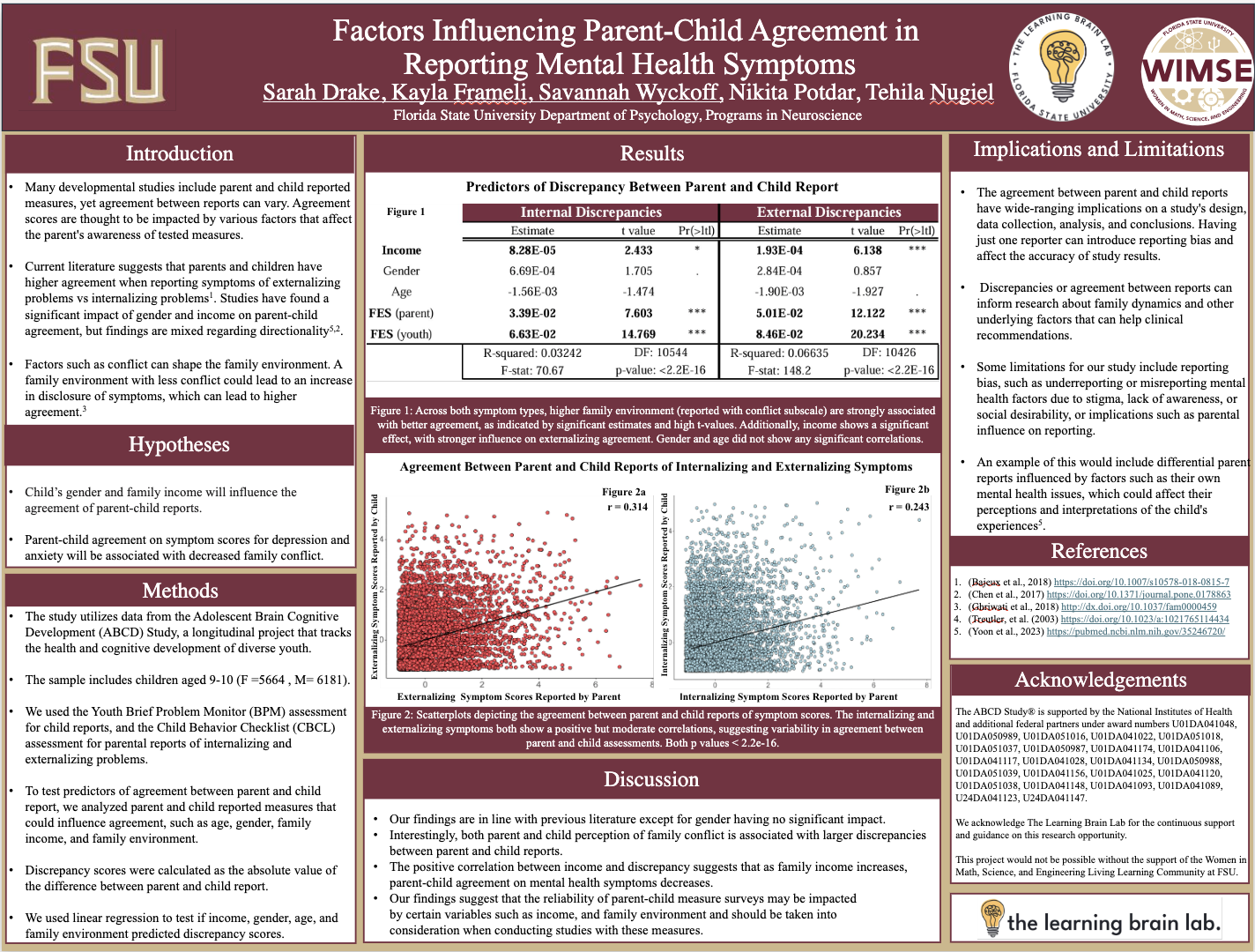Research Symposium
25th annual Undergraduate Research Symposium, April 1, 2025
Kayla Frameli Poster Session 1: 9:30 am - 10:30 am / Poster #271

BIO
Hello! I am a 3rd year undergraduate student at Florida State University studying Cell and Molecular Neuroscience with a minor in Chemistry and Child Development. After my undergraduate years, I hope to continue my education at a Veterinary School and eventually own my own practice. Currently, I have a special interest in working with small animals and livestock due to my experience at Ox Bottom Animal Hospital and Goat House Farm! As a previous pre-medical student, I have a vested interest in understanding the animal-human bond, and the extent to which animals play a role in our mental health. I have always had a passion toward working with children, and hope my research can aid me in furthering my knowledge of how assistance animals can aid children with cognitive disabilities.
Factors Influencing Parent-Child Agreement in Reporting Mental Health Symptoms
Authors: Kayla Frameli, Tehila NugielStudent Major: Cell and Molecular Neuroscience
Mentor: Tehila Nugiel
Mentor's Department: Psychology, Programs in Neuroscience Mentor's College: Arts and Sciences Co-Presenters: Savannah Wyckoff and Sarah Drake
Abstract
Many developmental studies use parent and child reported measures, yet correspondence between reports can vary. Measures like anxiety and depression tend to be more difficult for parents to report accurately, as internalizing symptoms are not easily observable. The purpose of this investigation is to evaluate the agreement between parent and child reports using the parent-reported Child Behavior Checklist (CBCL) and shorter version of the CBCL, the child-reported Behavior Problem Monitoring (BPM) that measure internal and external symptoms. This study will examine how factors such as the child’s gender, family income, as well as family conflict (measured by the Family Environment Scale) influence the agreement between parent and child reports. Family conflict will be measured using parent and child self-report in the Family Environment Scale. Our research utilizes data from the Adolescent Brain Cognitive Development (ABCD) Study, a longitudinal project examining the health and cognitive development of over 11,000 socio-demographically diverse youth. To assess agreement between parent and child reports, we will correlate the two, and a difference score will be calculated to measure discrepancies. We hypothesize that child gender and family income will influence the agreement of parent-child reports, based on prior literature which reveals mixed findings regarding their impact on the degree of agreement. We also hypothesize that parent-child agreement on symptoms will be associated with decreased family conflict. By identifying patterns in parent-child agreement, we can inform future research on factors that influence reporting accuracy, leading to more reliable mental health assessments for youth.
Keywords: Agreement, Parent-Child, Mental Health

